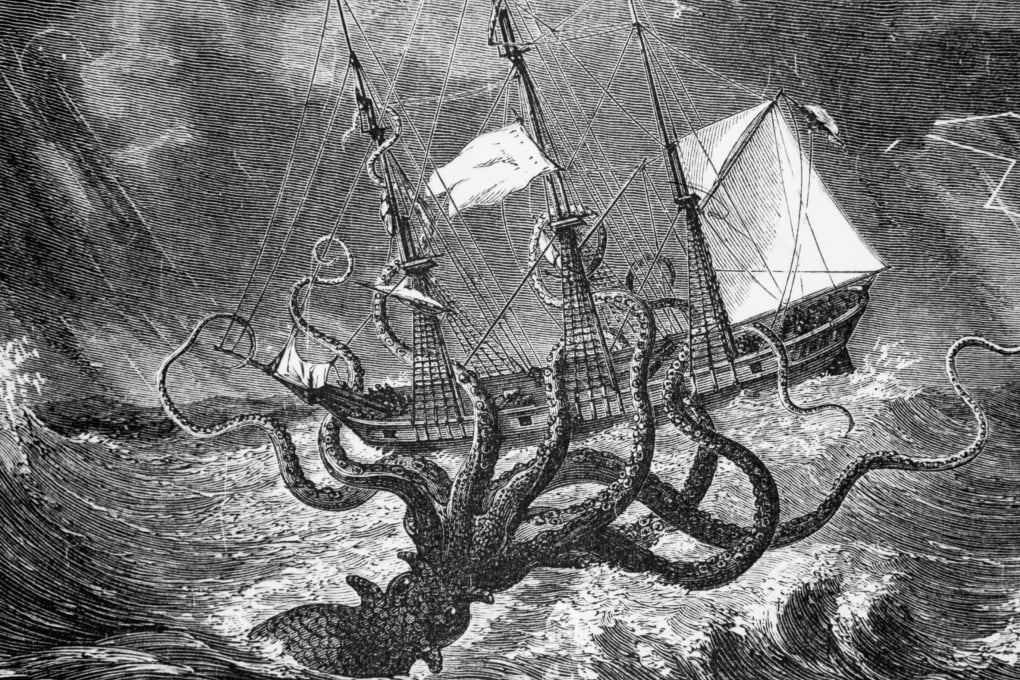Language Matters | As ‘Kraken’ Covid variant looms, from where did the legendary sea beast it is named for originate?
- The legendary kraken lives on – geneticists have unofficially named a new Covid-19 variant, thought to be the most transmissible yet, after the creature
- Originating in Scandinavian folklore, the kraken haunted the sea from Norway through Iceland to Greenland, and was first brought to general notice in 1752

It is the most terrifying monster imagined by man, portrayed as a multi-limbed sea creature that lurks in the ocean’s depths, creating fierce maelstroms of whirlpools, whose tentacles reach to the top of a sailing ship’s masts, dragging vessels down to their watery doom.
This is the legendary kraken.
Originating in Scandinavian folklore, the kraken haunted the sea from Norway through Iceland to Greenland.
Its name derives from the Old Norse kraki, meaning something crooked, which subsequently, from a special use of krake “pole, stake, post”, referring also to a crooked tree, stunted animal or person, gave the Norwegian dialectal krake (the -n is the definite article as a suffix).
Also related is the Old Norse verb kraka, meaning “to drag under the water”.

The word “kraken” did not initially occur in Scandinavian medieval writings. Two 13th century texts feature a bottom-dwelling sea monster called hafgufa, meaning “sea-mist” – described as a creature that, open-mouthed, regurgitates food and engulfs attracted fish, as well as one sent by an evil sorcerer to sink the hero’s ship.
